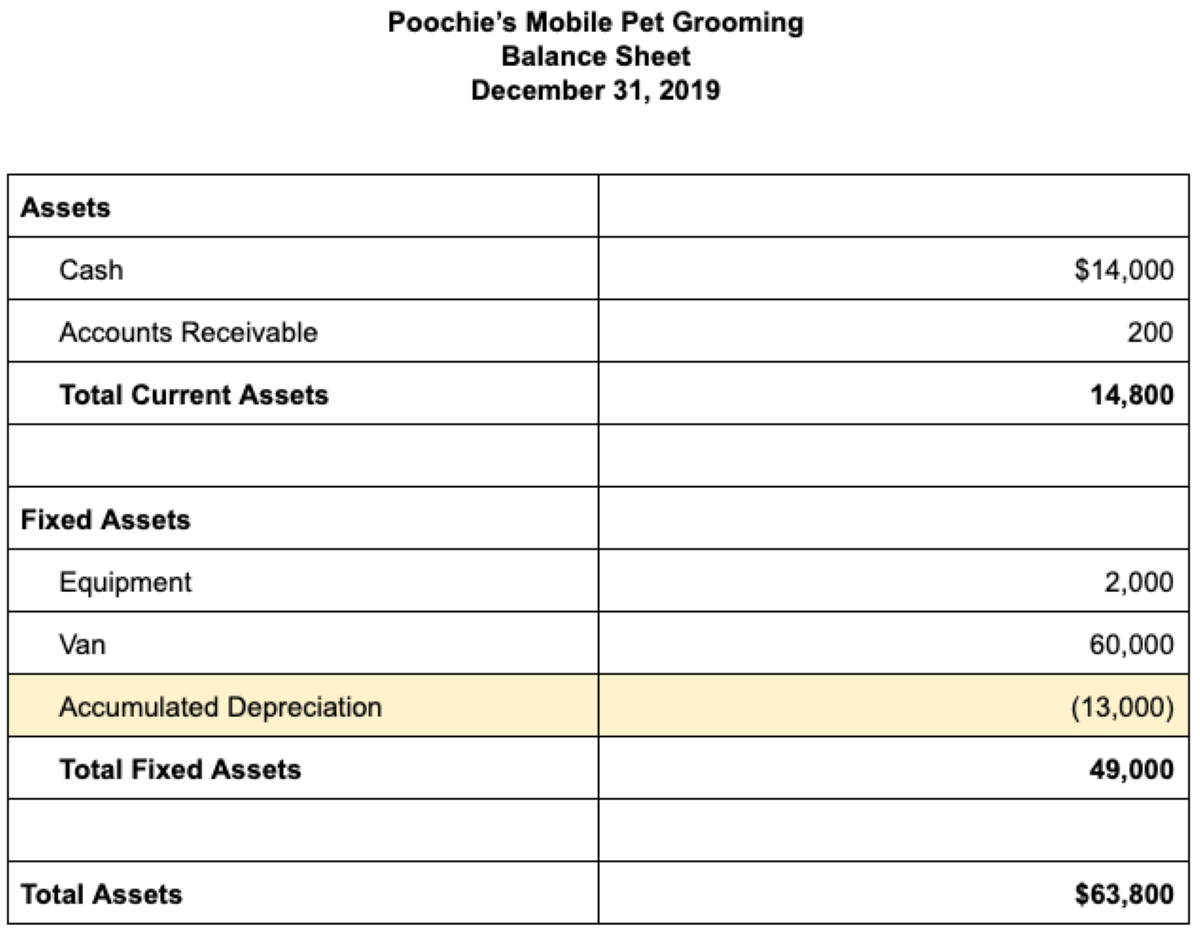

Finance
How Often Are Student Loans Compounded
Published: January 20, 2024
Learn how often student loans are compounded in the world of finance. Understand the impact of compounding interest on your loan and how it affects your repayment.
(Many of the links in this article redirect to a specific reviewed product. Your purchase of these products through affiliate links helps to generate commission for LiveWell, at no extra cost. Learn more)
Table of Contents
- Introduction
- Understanding the Concept of Compound Interest
- Debunking the Myth: Are Student Loans Compounded?
- Factors That Affect the Frequency of Compounding
- Federal and Private Student Loan Compounding
- How Often Are Federal Student Loans Compounded?
- How Often Are Private Student Loans Compounded?
- The Impact of Compounding on Student Loan Repayment
- Strategies for Managing Compounded Student Loan Interest
- Conclusion
Introduction
When it comes to financing higher education, student loans have become a common avenue for students and parents alike. These loans help bridge the financial gap and make it possible for individuals to pursue their academic dreams. However, one aspect of student loans that often sparks confusion and concern is the concept of compound interest.
Compound interest is the interest that accrues not only on the principal loan amount, but also on any previously accumulated interest. It can significantly impact the total amount repaid over the loan’s lifespan and can make a substantial difference in the borrower’s financial situation.
Understanding how often student loans are compounded is crucial for borrowers to effectively manage their repayment strategies. In this article, we will explore the concept of compound interest and debunk the myth surrounding the frequency of compounding for student loans. We will also delve into the factors that determine the frequency of compounding for both federal and private student loans, and discuss the implications of compounding on student loan repayment.
Whether you’re considering applying for a student loan, in the midst of repayment, or simply curious about the financing process, this article will provide you with valuable insights into the compounding dynamics of student loans. Let’s dive in and unravel the mystery behind student loan compounding.
Understanding the Concept of Compound Interest
Compound interest is a powerful financial concept that can work in your favor or against you, depending on the circumstances. Unlike simple interest, which is calculated only on the initial loan amount, compound interest accrues on both the principal and any accumulated interest. This means that as interest is added to the loan balance, the interest itself also generates interest.
Let’s illustrate this with an example. Imagine you have a student loan of $10,000 with an annual interest rate of 5%. If the interest is compounded annually, at the end of the first year, you would owe $10,500 ($10,000 principal + $500 interest). In the second year, the 5% interest would be calculated based on the new balance of $10,500, resulting in $525 in interest. Thus, the loan balance at the end of the second year would be $11,025.
This compounding effect continues over the life of the loan, and the higher the interest rate and more frequent the compounding, the faster the loan balance grows. Therefore, understanding how often your student loans are compounded is essential for managing your repayment strategy and making informed financial decisions.
Next, we will delve into the common misconception about how student loans are compounded and provide accurate information to help you navigate the landscape of student loan compounding.
Debunking the Myth: Are Student Loans Compounded?
There is a prevailing myth among borrowers that student loans are compounded daily or even hourly, resulting in exorbitant interest charges that can be financially crippling. However, this commonly held belief is not entirely accurate.
While it is true that student loans accrue interest over time, the frequency at which interest is compounded varies depending on the type of loan. Contrary to popular belief, most federal student loans do not compound interest daily. Instead, the interest on these loans typically accrues on a daily basis but is added to the loan balance monthly, quarterly, or annually.
Private student loans, on the other hand, may compound interest more frequently, depending on the terms and conditions set by the lender. Some private lenders compound interest daily or monthly, which can lead to a faster accumulation of interest compared to federal loans.
It’s important to note that the interest rates on student loans, whether federal or private, are set by the lender or the government and are based on various factors such as the economy, market conditions, and creditworthiness of the borrower. Therefore, it’s crucial to review the terms and conditions of your specific loan to determine the frequency at which interest is compounded.
By debunking this myth, borrowers can have a clearer understanding of how their student loans actually accumulate interest. Armed with this knowledge, you can better devise a repayment plan and explore strategies to mitigate the impact of compounded interest on your loan balance.
Factors That Affect the Frequency of Compounding
The frequency at which student loans are compounded depends on several factors, including the type of loan, the terms and conditions set by the lender, and the specific repayment plan chosen by the borrower. Let’s explore these factors in more detail:
- Type of Loan: Federal student loans, which are offered by the government, have standardized terms and conditions. The compounding frequency for federal loans is typically monthly. However, certain repayment plans, such as income-driven repayment plans, may have annual or even daily compounding. On the other hand, private student loans, which are obtained from banks, credit unions, or online lenders, can have varying compounding frequencies, depending on the institution and the loan agreement.
- Terms and Conditions: Each loan agreement will outline the specific terms and conditions of the loan, including the frequency of compounding. It’s crucial to carefully review these details to understand how interest will accumulate on your loan balance over time. Private lenders may offer different compounding options, ranging from daily to monthly to annual compounding. Make sure to verify this information from your lender and read the loan agreement thoroughly.
- Repayment Plan: The repayment plan chosen by the borrower can also impact the frequency of compounding. Certain repayment plans, like standard repayment, involve fixed monthly payments, ensuring that interest is added to the loan balance at the same interval. Other plans, such as income-driven repayment plans, may recalculate payments annually based on the borrower’s income and family size, which can lead to different compounding frequencies.
Understanding these factors that affect the frequency of compounding is vital for devising a repayment strategy and managing your student loan debt effectively. By knowing how frequently your interest is compounded, you can make informed decisions and take proactive measures to reduce the impact of interest on your loan balance.
Federal and Private Student Loan Compounding
When it comes to student loans, there are two main categories: federal and private. Each category has its own rules and regulations regarding compounding interest. Let’s take a closer look at how compounding works for federal and private student loans:
Federal Student Loan Compounding:
For federal student loans, the most common type of compounding is monthly. This means that interest accrues on a daily basis but is added to the loan balance once a month. This compounding frequency applies to loans such as Direct Subsidized Loans, Direct Unsubsidized Loans, and Direct PLUS Loans. However, it’s important to note that the specific terms and conditions of federal loans can vary based on the borrower’s repayment plan.
However, some income-driven repayment plans, like Income-Based Repayment (IBR), Pay As You Earn (PAYE), and Revised Pay As You Earn (REPAYE), may have annual compounding. This means that the interest is calculated and added to the loan balance once a year. It’s crucial to review the details of your specific federal loan and repayment plan to determine the compounding frequency.
Private Student Loan Compounding:
Private student loans, being offered by banks, credit unions, and online lenders, have more flexibility in terms of compounding. The frequency of compounding can vary depending on the lender and the loan agreement. Some private lenders compound interest daily, meaning that interest is added to the loan balance every day. Others may have monthly or annual compounding.
It’s important to carefully read and understand the terms and conditions of your private student loan to determine the compounding frequency. Knowing this information can help you evaluate the impact of interest on your loan balance and make informed financial decisions.
Overall, whether you have federal or private student loans, understanding how compounding works is crucial for managing your repayment strategy effectively. By familiarizing yourself with the specific terms and conditions of your loans, you can make informed decisions and take steps to minimize the impact of compounding interest on your overall debt.
How Often Are Federal Student Loans Compounded?
Federal student loans, which are offered by the U.S. Department of Education, have standardized terms and conditions that dictate the compounding frequency. In general, federal student loans are compounded monthly. However, it’s important to note that the specific terms of your loan and the repayment plan you choose may impact the compounding frequency.
With monthly compounding, interest on federal student loans accrues on a daily basis. At the end of each month, the accrued interest is added to the loan balance, increasing the total amount owed. The interest is then calculated moving forward based on the new loan balance.
It’s important to understand that although interest is added monthly, it does not mean that it is compounded daily. The interest that accrues daily is simply calculated and added to the loan balance at the end of the month. This differs from loans that truly compound on a daily basis, where interest is added to the balance every day.
It’s also worth mentioning that certain federal repayment plans, such as Income-Based Repayment (IBR), Pay As You Earn (PAYE), and Revised Pay As You Earn (REPAYE), have unique features that may impact the compounding frequency. Under these income-driven plans, the monthly payments are based on the borrower’s income and family size. While the interest still accrues daily, the compounding of interest may occur annually instead of monthly.
As a borrower with federal student loans, it’s essential to familiarize yourself with the terms and conditions of your loan and any repayment plans you are considering. Reading your loan agreement and consulting with your loan servicer can help you understand the specifics of how interest accrues and compounds with your federal student loans.
By having a clear understanding of how often federal student loans are compounded, you can better manage your repayment strategy and make informed decisions to minimize the impact of interest on your loan balance over time.
How Often Are Private Student Loans Compounded?
When it comes to private student loans, the frequency of compounding can vary depending on the lender and the terms of the loan agreement. Unlike federal student loans with standardized compounding terms, private student loans allow for more flexibility in determining how often interest is compounded.
Some private student loan lenders compound interest on a daily basis. This means that interest is calculated and added to the loan balance every day. With daily compounding, interest can accrue quickly, impacting the total amount owed over time. Other private lenders may compound interest on a monthly or annual basis.
To determine the compounding frequency of your private student loans, it is crucial to carefully review the terms and conditions outlined in your loan agreement. Look for specific information regarding how often interest is compounded and how it impacts the overall cost of your loan.
It’s important to note that the more frequently interest is compounded, the faster the loan balance can grow. If a lender compounds interest daily, the impact of accrued interest can be significant compared to monthly or annual compounding. Therefore, understanding the compounding frequency is crucial for managing your repayment strategy and making informed financial decisions.
If you have multiple private student loans from different lenders, it’s important to determine the compounding frequency for each individual loan. This way, you can prioritize repayments or consider refinancing options with lower compounding frequencies to potentially reduce the overall cost of your loans.
Remember that private student loan terms can vary, and each lender may have their own policy regarding compounding interest. Take the time to read through your loan agreement, contact your lender directly if you have any questions, and consider consulting a financial advisor to ensure you fully understand the aspects of your private student loans, including the compounding frequency of interest.
By understanding how often your private student loans are compounded, you can better develop a repayment strategy that aligns with your financial goals and potentially reduce the overall cost of your loans over time.
The Impact of Compounding on Student Loan Repayment
The concept of compound interest has a significant impact on student loan repayment. Understanding how compound interest affects your loan balance can help you make informed decisions and develop strategies to manage your debt effectively.
One of the primary effects of compounding is that it can increase the total amount you owe over time. As interest compounds, it is added to the principal loan amount, resulting in a higher loan balance. For example, if you have a $30,000 student loan with a 6% interest rate, the interest will continue to accrue on the outstanding balance, increasing the overall amount you owe.
The more frequently interest is compounded, the faster your loan balance will grow. If interest compounds daily, it can have a bigger impact compared to monthly or annual compounding. This compounding effect can lead to a significant increase in the repayment amount, making it important to consider the compounding frequency when evaluating loan options.
Another important factor to consider is the length of your repayment term. The longer your loan is outstanding, the more time there is for interest to compound and accumulate. This can result in a higher total repayment amount over the life of the loan. Shortening the repayment term can help minimize the impact of compounding and save you money on interest payments.
Furthermore, compound interest can also impact your monthly loan payments. If your loan balance grows due to compound interest, it can result in higher monthly payments. This may create challenges in your budgeting and financial planning.
However, understanding the impact of compounding allows you to take proactive steps to manage your student loan repayment. Here are some strategies to consider:
- Make extra payments: By paying more than the minimum monthly payment, you can reduce the outstanding balance faster and potentially save on interest payments.
- Consider refinancing: If you have private student loans, refinancing may be an option to secure a lower interest rate and potentially reduce the overall impact of compounding.
- Explore income-driven repayment plans: For federal student loans, income-driven repayment plans calculate monthly payments based on your income and family size, providing more manageable repayment options.
- Pay attention to interest capitalization: Interest capitalization occurs when unpaid interest is added to the principal loan balance. Minimizing the occurrence of interest capitalization can help reduce the impact of compounding.
By strategically managing your student loan repayment and considering the impact of compound interest, you can take control of your debt and work towards financial freedom.
Strategies for Managing Compounded Student Loan Interest
Managing compounded student loan interest requires a proactive approach and careful financial planning. By implementing effective strategies, you can minimize the long-term impact of interest on your loan balance. Here are some strategies to consider:
- Make extra payments: Making additional payments towards your student loan, especially towards the principal balance, can help reduce the overall impact of compounded interest. By paying more than the minimum monthly payment, you can reduce the principal faster and save on interest charges over time.
- Consider bi-weekly payments: Instead of making monthly payments, consider switching to bi-weekly payments. By doing so, you’ll effectively make an extra payment each year, as there are 26 bi-weekly periods in a year. This can help reduce the loan balance faster and save on interest.
- Refinance your loans: If you have private student loans with high interest rates, refinancing may be an option. By refinancing, you can obtain a lower interest rate, potentially reducing the impact of compounding and saving money on interest payments over time.
- Explore loan forgiveness options: Certain professions, such as teaching or public service, may offer loan forgiveness programs. By fulfilling specific criteria, you may be eligible to have a portion or all of your student loans forgiven, effectively reducing the impact of compounded interest.
- Stay informed about repayment options: Stay up-to-date with information regarding repayment plans, especially for federal student loans. Income-driven repayment plans, for example, calculate your monthly payments based on your income and family size, providing more manageable repayment options.
- Minimize interest capitalization: Interest capitalization occurs when unpaid interest is added to the loan balance. To minimize this, consider paying the interest that accrues during the grace period or while in school. By doing so, you can prevent interest from being added to the principal and compounding over time.
- Seek professional advice: Consider consulting with a financial advisor or student loan expert who can provide personalized guidance tailored to your specific situation. They can help you develop a customized repayment strategy and identify opportunities to manage compounded interest.
Implementing these strategies requires careful financial planning and budgeting. It’s important to evaluate your financial situation, consider your long-term goals, and choose the strategies that align with your objectives.
Remember, each borrower’s situation is unique, so it’s essential to assess your options and determine the best approach for managing compounded student loan interest based on your circumstances. By taking proactive steps, you can reduce the impact of interest on your loan balance and work towards financial stability and freedom.
Conclusion
Understanding how compound interest works and its effect on student loan repayment is essential for borrowers looking to effectively manage their debt. While student loans can feel overwhelming, being aware of the compounding dynamics and implementing strategic approaches can help minimize the long-term impact of interest and pave the way towards financial freedom.
We have debunked the myth surrounding the frequency of compounding for student loans, clarifying that federal student loans are typically compounded monthly, while private student loans may have varying compounding frequencies depending on the lender and loan agreement. This knowledge empowers borrowers to make informed decisions and develop repayment strategies that align with their financial goals.
The impact of compounding on student loan repayment can be significant, resulting in higher overall loan balances and increased monthly payments. However, through strategies such as making extra payments, considering loan refinancing, exploring forgiveness programs, and staying informed about repayment options, borrowers can take control of their debt and mitigate the effects of compounding interest.
It’s important to remember that managing compounded student loan interest requires careful financial planning and proactive steps. By implementing these strategies and seeking professional advice when necessary, borrowers can reduce their debt burden and work towards a more secure financial future.
In conclusion, stay knowledgeable about the terms and conditions of your student loans, be mindful of how often interest is compounded, and take proactive measures to manage your debt effectively. With a solid understanding of compound interest and a strategic approach to repayment, you can navigate the world of student loans with confidence and work towards a debt-free future.














